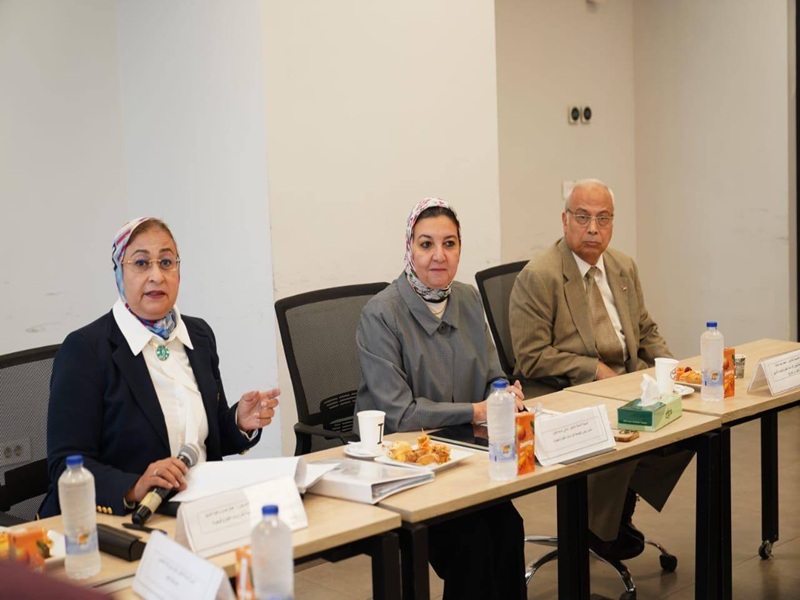The Vice President of Ain Shams University Chairs the Postgraduate Studies and Research Council Meeting for the 2025/2026 Academic Year
The regular meeting of the Postgraduate Studies and Research Sector Council at Ain Shams University for the 2025/2026 academic year was held, chaired by Prof. Amany Osama Kamel, Vice President of the University for Postgraduate Studies and Research, with the attendance of deans, vice deans for postgraduate studies and research, and council members.
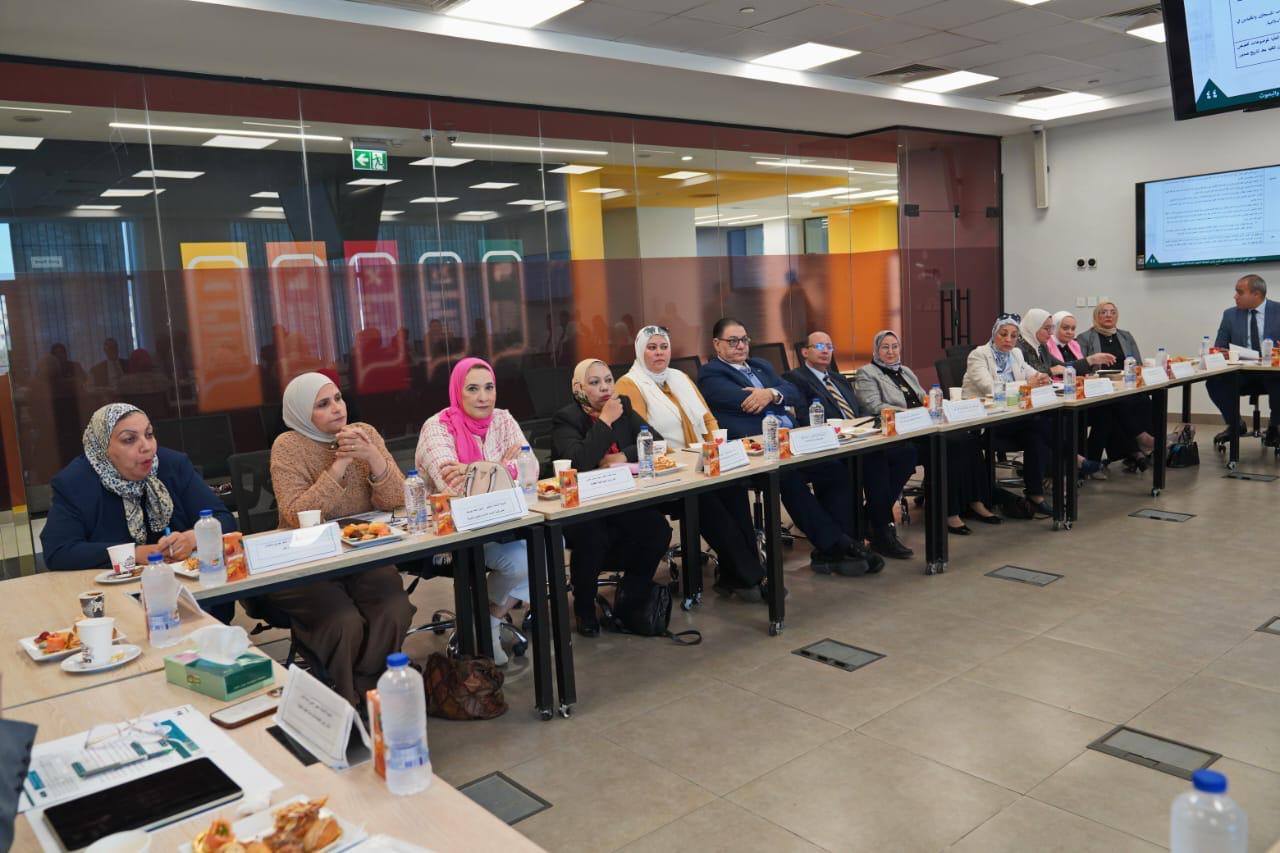 |
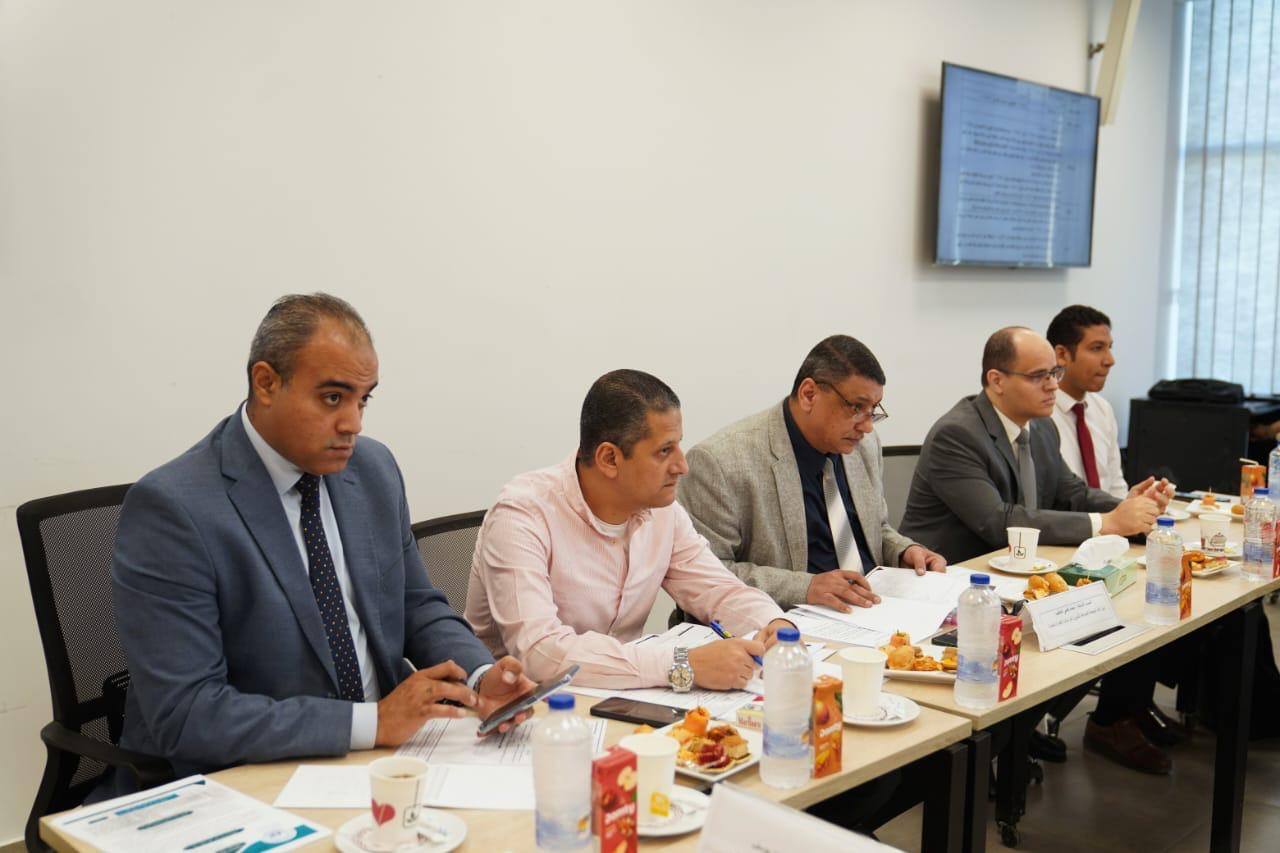 |
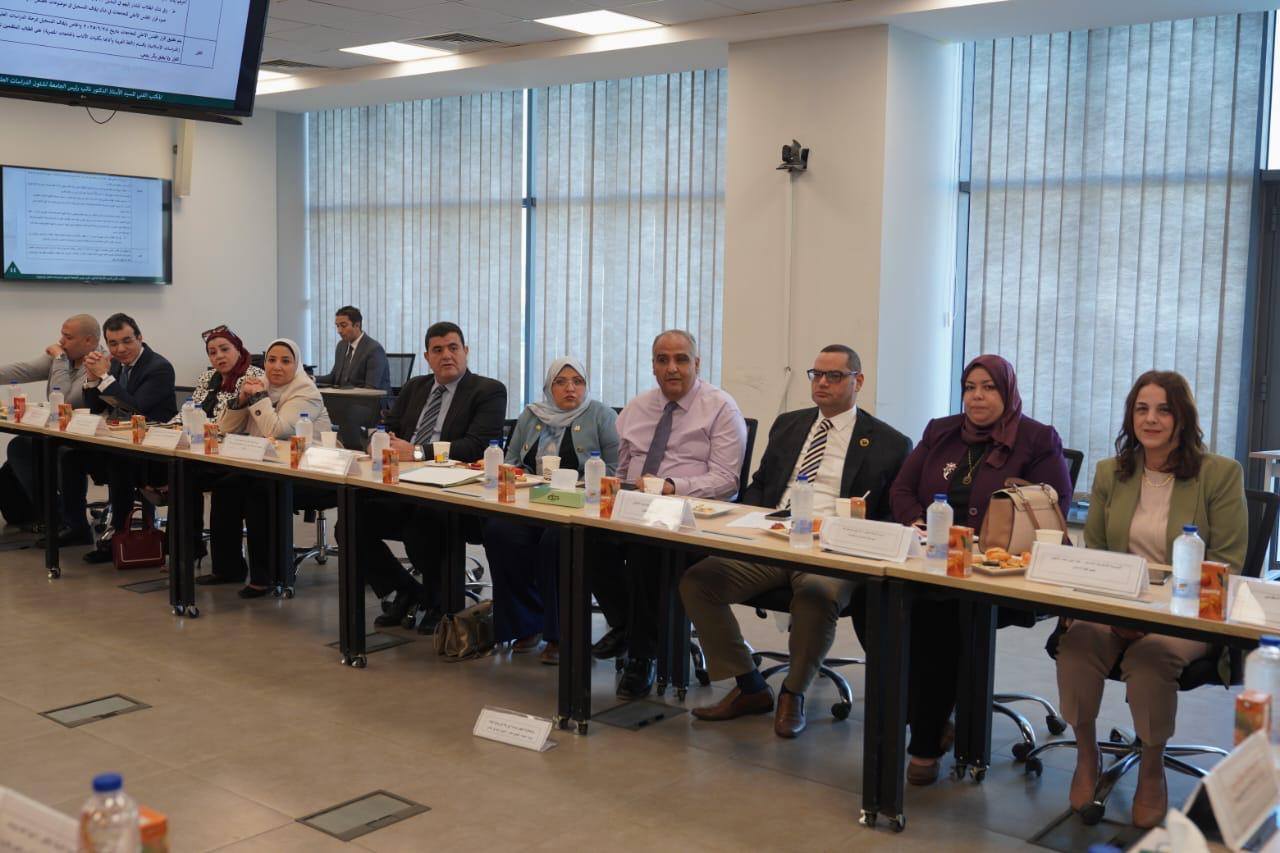 |
||
Prof. Amany Osama Kamel opened the session by announcing the University Council’s decision to establish a Scientific Research Support Fund, aimed at increasing research funding, encouraging researchers, and supporting studies with a direct impact on the university community. The fund focuses on financing research that serves the university’s strategic research plan and aligns with the broader vision of the University and the State, based on a detailed assessment of challenges across various disciplines, thereby enhancing progress indicators in scientific research.
During the meeting, she reviewed the main activities of the Postgraduate Studies and Research Sector, including workshops organized with the international publisher Elsevier in collaboration with the Egyptian Knowledge Bank, focusing on artificial intelligence applications, research integrity, and impact. She also highlighted a workshop conducted in cooperation with the Egyptian Knowledge Bank, and another in collaboration with the Egyptian Intellectual Property Office in the pharmaceutical sector titled “Intellectual Property and Medicine Accessibility” at the University Innovation and Entrepreneurship Center.
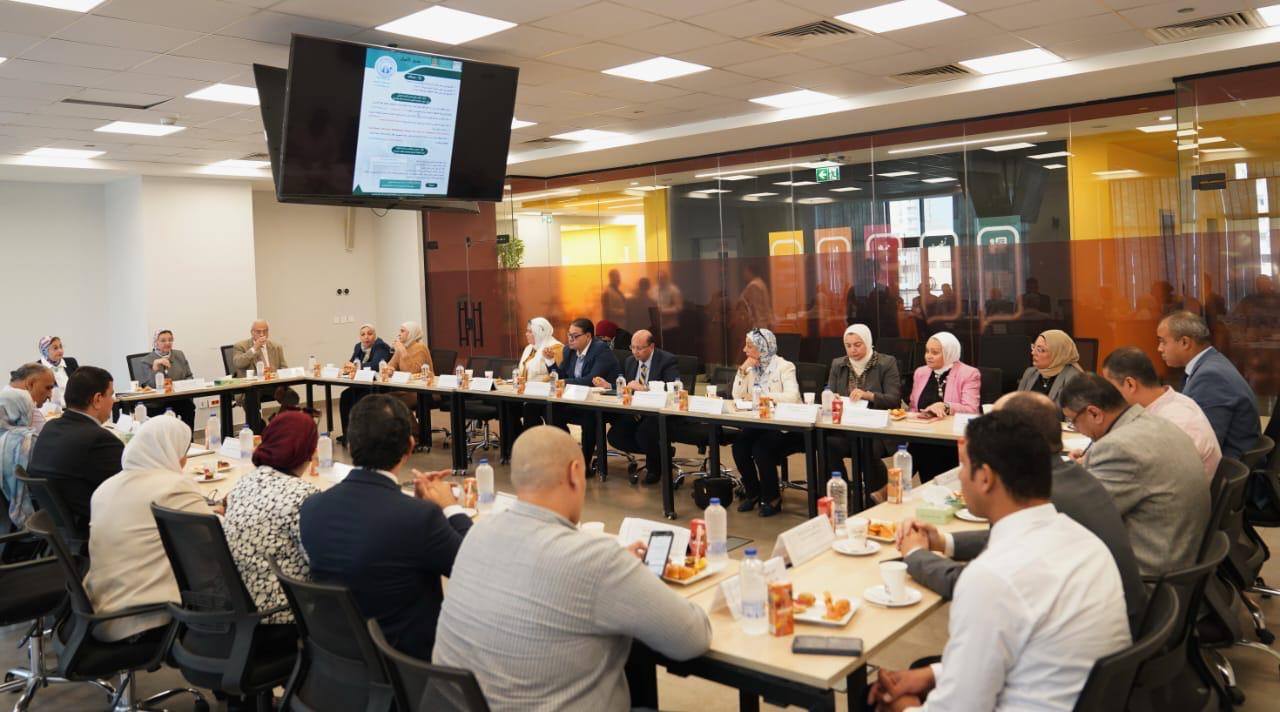 |
 |
The council also discussed the establishment of the Ain Shams University Institutional Animal Care and Use Committee (ASU-IACUC). Its key responsibilities include creating a centralized system with global guidelines within faculties to oversee the ethical use of animals in research and teaching, ensuring humane treatment and healthcare for animals through reviewing and monitoring research protocols and living conditions.
Dr. Mahmoud Faiz, Director of the Networks and IT Center, provided a briefing on the role of the “Ain Shams Scholar” platform for scientific research across the university’s faculties, discussing mechanisms for uploading research and emphasizing the need to develop effective procedures for registering research on the platform. Several proposals on this matter were discussed by the council.
Prof. Abdullah Mohamed Sami, Director of the University Fellows Office, presented a comprehensive proposal for supporting students and researchers sent abroad, emphasizing the importance of safeguarding their status and providing support through a clear strategy to prevent service termination before assessing each individual case. He also suggested establishing an official mechanism within the Fellows Office to monitor their conditions abroad and enhance institutional communication with cultural attachés and direct contact with fellows, with their cases reported to the Vice President. Prof. Amany Osama Kamel affirmed the University’s commitment to supporting fellows and ensuring no action is taken without verifying their circumstances and monitoring them closely.
The session included several presentations and discussions by the vice deans regarding the research and scientific system within the faculties including Prof. Abdel Nasser Mohamed Rashad, Vice Dean of the Faculty of Education for Postgraduate Studies and Research, presented an organizational chart of the scientific departments, summarized the status of postgraduate studies and scientific seminars, participation in conferences, monitoring of national and international publications, and knowledge exchange among faculties. He also reviewed the implementation of the University research plan, highlighted distinguished programs within the Faculty of Education, and showcased the scientific journals published by the faculty.
Dr. Dalia Youssef, Director of the Central E-Learning Unit, outlined a vision to maximize the benefits of Microsoft services in managing the educational process. She noted ongoing coordination to organize a workshop with the central team, e-learning teams across faculties, and the electronic library team to raise user awareness and enhance proficiency in using digital platforms. She also presented a system for monitoring and measuring platform usage through performance indicators on a dashboard and reported training of faculty representatives, highlighting that the Faculty of Education achieved among the highest activation indicators.
Dr. Dalia Youssef also introduced a dedicated platform for postgraduate interdisciplinary programs, reporting the conduction of three remote electronic exams with monitoring systems and anti-cheating measures, with results issued the same day.
Dr. Mahmoud Faiz presented the monthly report on the performance of the Networks and IT Center, including the establishment of an electronic portal for the Fellowship Fund to facilitate elections, payment management, and overall process monitoring. The report also covered the development of the electronic correspondence system, digitization of staff records, the “Microfilm Digitization” project for Master’s and PhD theses, and the launch of “Shams HyperMind” to serve postgraduate researchers using artificial intelligence, in addition to a Community Monitoring Observatory in collaboration with the Community Service Sector to assess graduate quality and labor market alignment over the past six months.
Prof. Rasha Ismail, Dean of the Faculty of Computer and Information Sciences, presented a periodic report on the progress of digital transformation and automation of the sector (UMS) and the University website. She also reviewed developments in the scientific research sustainability system, opened nominations for the Ain Shams University Administrative Excellence Award, and activated the conference management system.
The council concluded with a report by Dr. Dina Lashin, Director of the International Students Office, highlighting an increase in the number of students registered via the “Study in Egypt” platform compared to the previous year, alongside a rise in the number of international students admitted to postgraduate programs across the university’s faculties for the new academic year.


.svg)

